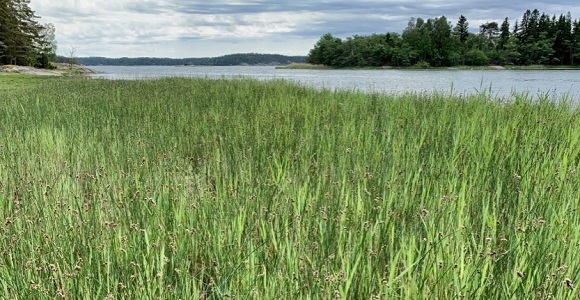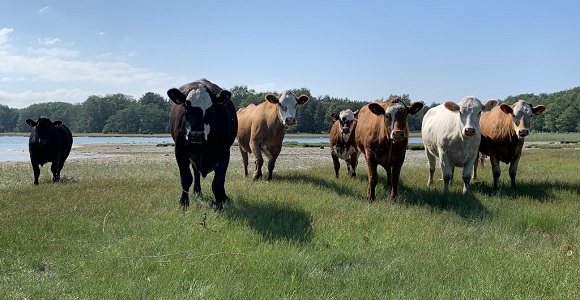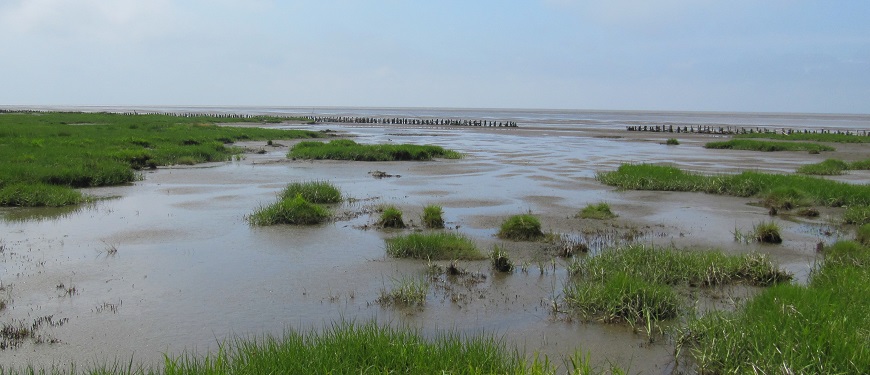Coastal marshes in the Nordic/Scandinavian region are largely understudied and differ substantially from “classic”, well-studied, macrotidal salt marshes due to the microtidal nature and wide climate and salinity gradients of the region, affecting the plant species assemblage. The strong salinity gradient in the Baltic Sea means that marsh vegetation changes from classic, grass (Spartina?) dominated marshes to salt meadows to brackish reed lagoons and coastal meadows across the region.
The goal of NordSalt is to assess the nature, diversity, extent and long-term changes of Nordic coastal marsh habitats, to evaluate their role in climate regulation (net greenhouse gas emissions and Blue Carbon storage) and to assess their vulnerability and change in ecological structure and functions under future climate warming scenarios, local environmental pressures and management decisions.

NordSalt will assess relationships between plant community structure, biodiversity and carbon cycling to evaluate how the marsh habitats provide climate and coastal protection-related benefits to society i.e., ecosystem services. The project has particular focus on carbon sequestration (so called “Blue Carbon”) and net greenhouse gas emissions (CO2 and methane) in these ecosystems. Detailed field studies of marsh carbon pools and sequestration rates in grazed and ungrazed locations will take place at five case study sites across the range of Nordic coastal marsh habitats. Greenhouse gas flux rates will be seasonally measured at three of the case study sites (Finland, Denmark and Germany). The interactions between marsh plant community biodiversity, soil microbial processes and temperature change for net carbon release and storage will be tested experimentally in a common garden experiment at the University of Hamburg.
NordSalt will also explore historical changes in the distribution of Nordic coastal marshes and associated changes in community biodiversity related to climatic and local pressures and management practices, including grazing, which dramatically affect the plant community.

Moreover, NordSalt will evaluate the potential of management of Nordic coastal marshes as nature-based solutions (NbS) in a local, regional and global context. To provide the best basis for these considerations, a comprehensive range of climate and coastal protection-related ecosystem services (ES) of these habitats will be evaluated and discussed with relevant policy, management and local stakeholders. On this basis, NordSalt will inform sustainable management practices under current and future climate settings.
NordSalt is funded by the BiodivERsA EU program in collaboration with national funding agencies. Partners in the NordSalt consortium are University of Southern Denmark (lead), Aarhus University (Denmark), Åbo Akademi University (Finland), Stockholm University (Sweden), SINTEF (Norway) and University of Hamburg (German).